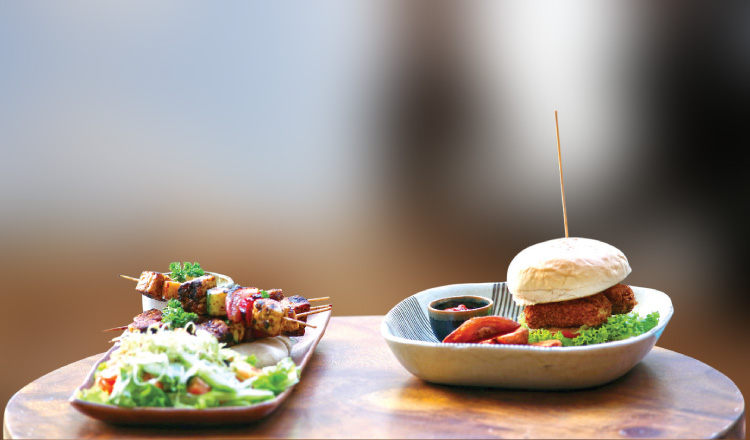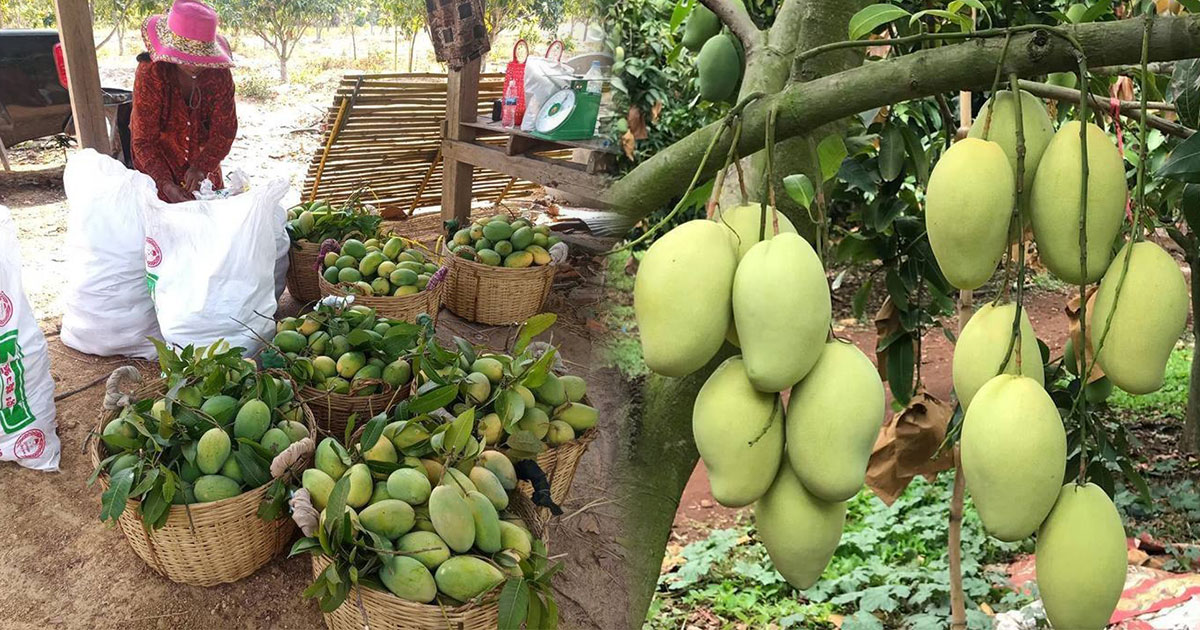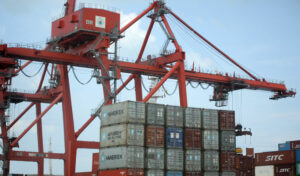Multi-billion $ global vegan market sprouting roots in Cambodia
According to market analyst site Grand View Research (GVR), the global vegan food market size was valued at $12.69 billion in 2018 and is projected to expand at a compound annual growth rate of 9.6 percent between 2019 and 2025.
GVR notes: “Increasing awareness about the benefits of following a vegan diet is the key factor responsible for the growth of this market. North America, Europe and Asia-Pacific in particular, have a large percentage of vegan population.”
It also cites that growing awareness about animal health and animal cruelty in the food industry has encouraged people to shift from animal-based to plant-based food products.
According to the Vegan Society between 2012 and 2017 meat-free food demand grew by 987 percent, with vegan products being googled three times more than other leading trends.
“A combination of factors, from health and livelihood benefits to economic-impact conscious consumers is spurring demand for plant-based foods,” the society added.
In Cambodia, co-owners of Toul Tom Poung based Sacred Lotus – English-Indian Krishan Clark-Varma and Cambodian Neth Long say eating plant-based food is a lifestyle.
“It allows us to benefit the environment while benefitting our bodies. The reasons to pursue plant-based vegan lifestyles? Apart from being against animal suffering and reducing our impact on the environment, it’s also personal health benefits,” they concurred.
Clark-Varma said: “I suffered from ulcerative colitis and a plant-based food diet improved my health substantially,” he said.
GVR said changing consumer perceptions towards healthy food habits and increasing awareness of musculoskeletal health owing to the rise in diseases such as osteoporosis and osteosarcoma may trigger market share further.
“Asia-Pacific’s vegan food market demand is expected to witness the fastest growth during the forecast period. Asia -Pacific held the largest share of vegan consumers globally, with more than 8.5 percent of people following vegan diets owing to rising consumer consciousness on the side effects of non-vegan products on human health.”
According to Global Market Insights, the vegan food market size is likely to witness steady gains over the forecast period owing to changing consumer perceptions towards vegetarian diets as well as its potential benefits in regulating cholesterol and insulin level,” it stated.
“Consumer consciousness related to the potential benefits of vegan food such as lower levels of cholesterol, insulin, stress- and anxiety-inducing hormones such as adrenaline and cortisol is changing consumer perceptions on animal-derived products, which fosters the vegan food market growth.”
However, as well as the claimed health benefits, Sacred Lotus has also recognised the business potential it offers them. “It’s allowed us to establish our community cafe and hold events and create a space for people to come and experience Cambodia as vegan tourists,” they also said.
“We have a unique selling point, for locals and expats to learn more about plant-based food. This community has been a lifeline for us amid the pandemic with our number of repeat customers increasing by 70 percent.”
Irina Chakraborty, owner of YK Art House and vegan restaurant Bong Bonlai, said the ethics of veganism are important in running her business.
“Things like having our own water treatment system instead of using bottled water, supporting Ruy Reach black soldier fly composting, recycling our organic waste and reducing plastic and now being able to separate plastic waste to drop off at the Music Arts school – which is making eco-bricks with it – are part of my business being ethical.”
She points out that being vegan doesn’t necessarily mean being healthy as a diet of french fries and Oreos is technically vegan.
The good news is that it’s easy to enjoy a diverse and balanced diet without having to use animal products in Cambodia, where there is an abundance of year-round fresh produce to choose from.
Chakraborty says everybody knows they should be eating more vegetables and plant-based food are making vegetables the best bit.
“When you order meat dishes, the vegetables are usually just a garnish. Also, the environmental benefits of switching to plant-based are enormous, even when accounting for the transporting of exotic ingredients. Your greenhouse gas footprint drops by up to 75 percent. It means much less farmland can feed more people, which means more forests preserved as habitats to protect endangered species.”
Bong Bonlai recently released a video on its Facebook page detailing how eating at its restaurant actively reduces climate change.
“Animal products account for 75 percent of CO2 emissions, whereas vegan foods account for 25 percent because growing plants uses less energy than meat or dairy. Making 100 grammes (g) of beef releases 10 to 100 times more CO2 than 100g of beans. In 2020 we made 3,352 vegan meals which, in turn, saved five tonnes of CO2 [over what] meat-based dishes [would generate]. [That amount] can be absorbed by around 350 trees in one year.”
For those not wanting to plunge into vegan options full stop, some restaurateurs are also catering to a more casual “flexitarian” demand.
Vibe Cafe owner Eric Tondine says that Vibe, the pioneer of vegan restauarants in Cambodia, is 100 percent vegan, but his other restaurant, Backyard, has a ‘flexitarian menu that allows for vegans and their more carnivorously inclined friends to share a meal together. Khmer Times







